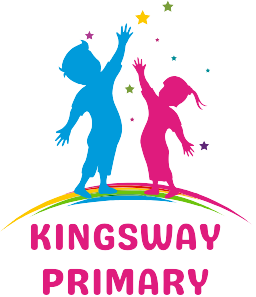Ever wondered why kids can remember every Pokémon but struggle to find their shoes? Welcome to the quirky world of executive functioning! This set of mental skills is like the brain’s very own control center, helping children plan, focus, and manage their emotions. Without these skills, even the most brilliant young minds can feel like a car without a steering wheel—going nowhere fast.
Table of Contents
ToggleUnderstanding Executive Functioning in Children
Executive functioning serves as a vital framework for a child’s cognitive abilities. These skills guide children in organizing thoughts, managing emotions, and navigating daily tasks.
Definition and Components
Executive functioning encompasses three primary components: working memory, cognitive flexibility, and inhibitory control. Working memory allows children to hold and manipulate information while performing tasks. Cognitive flexibility involves adapting to changing situations or rules. Inhibitory control helps children resist distractions and impulses, enabling them to stay focused on their goals. Together, these components create a cohesive system that supports decision-making and problem-solving throughout childhood.
Importance of Executive Functioning
Executive functioning plays a crucial role in a child’s overall development. It impacts academic performance by influencing a child’s ability to follow instructions, complete assignments, and study effectively. Strong executive functioning skills also enhance social interactions, allowing children to manage relationships. Children proficient in these skills experience less frustration in everyday situations, leading to greater emotional stability. Academic and social success hinges on the effectiveness of these functions, making them essential for lifelong learning.
Challenges in Executive Functioning

Many factors contribute to challenges in executive functioning among children. These challenges can stem from various disorders or conditions that impact cognitive skills.
Common Disorders and Conditions
Attention-Deficit/Hyperactivity Disorder (ADHD) frequently affects executive functioning, leading to difficulties in focus and impulse control. Autism Spectrum Disorder (ASD) also poses challenges, often causing issues with flexibility and emotional regulation. Learning disabilities, such as dyslexia and dyscalculia, further complicate the ability to process information. Additionally, anxiety and depression can hinder a child’s capacity to manage tasks effectively. Understanding these conditions aids in identifying appropriate support strategies.
Signs of Difficulty in Children
Indicators of executive functioning difficulties frequently manifest in everyday behavior. Children may struggle to follow multi-step instructions, resulting in incomplete tasks. Forgetfulness often appears as misplaced belongings or missed assignments. Emotional outbursts can occur when faced with unexpected changes, reflecting a lack of self-control. Moreover, challenges with time management typically lead to procrastination and failing to meet deadlines. Recognizing these signs helps parents and educators offer timely assistance.
Strategies to Support Executive Functioning
Supporting children’s executive functioning can enhance their cognitive skills and everyday performance. Parents and educators play vital roles in implementing effective strategies.
Home Interventions
Establishing routines at home provides children with a structured environment. Children benefit from visual schedules that outline daily tasks like homework and chores. Providing a consistent space for homework reduces distractions and promotes focus. Breaking tasks into smaller steps helps children manage larger assignments without feeling overwhelmed. Rewarding progress rather than just completion encourages perseverance and builds confidence. Additionally, integrating games that promote strategic thinking, like chess or puzzles, fosters cognitive flexibility.
School Strategies
Teachers can promote executive functioning with tailored classroom strategies. Assigning specific roles during group activities helps children practice organizational skills. Utilizing timers for tasks instills time management while providing clear deadlines enhances focus. Classroom seating arrangements that minimize distractions contribute to better attention. Incorporating social-emotional learning programs can improve emotional regulation and impulse control. Regular check-ins regarding individual progress make children feel supported and accountable. Using visual aids during instruction reinforces concepts and aids memory retention.
Assessing Executive Functioning
Assessing executive functioning in children requires a structured approach. Various tools and techniques exist to evaluate cognitive skills effectively.
Assessment Tools and Techniques
Standardized assessments like the Behavioral Rating Inventory of Executive Function (BRIEF) help measure a child’s executive functioning in everyday environments. Observational checklists provide insights into children’s behavior during tasks. In addition, neuropsychological tests assess working memory and cognitive flexibility. Informal methods, such as interviews with parents and teachers, also yield valuable information. Each technique offers unique advantages that help identify specific areas of concern, enabling targeted interventions.
Role of Professionals
Professionals play a crucial role in assessing executive functioning. Psychologists and educators often collaborate on evaluations, ensuring a comprehensive understanding of the child’s abilities. Trained specialists utilize assessment results to formulate individualized strategies that address specific needs. Therapists may also provide additional guidance through cognitive-behavioral strategies and skill-building activities. Working together, these professionals support children in developing critical executive functioning skills necessary for success in academics and life.
Understanding executive functioning in children is essential for fostering their growth and development. These cognitive skills play a pivotal role in shaping their ability to navigate daily challenges and achieve academic success. By recognizing the signs of executive functioning difficulties, parents and educators can implement effective strategies that support children in building these crucial skills.
Creating structured environments at home and school not only enhances focus and emotional regulation but also empowers children to thrive in various aspects of life. With the right support and interventions, children can develop the executive functioning skills necessary for lifelong learning and personal fulfillment. Investing in these abilities today lays the foundation for a brighter future.



